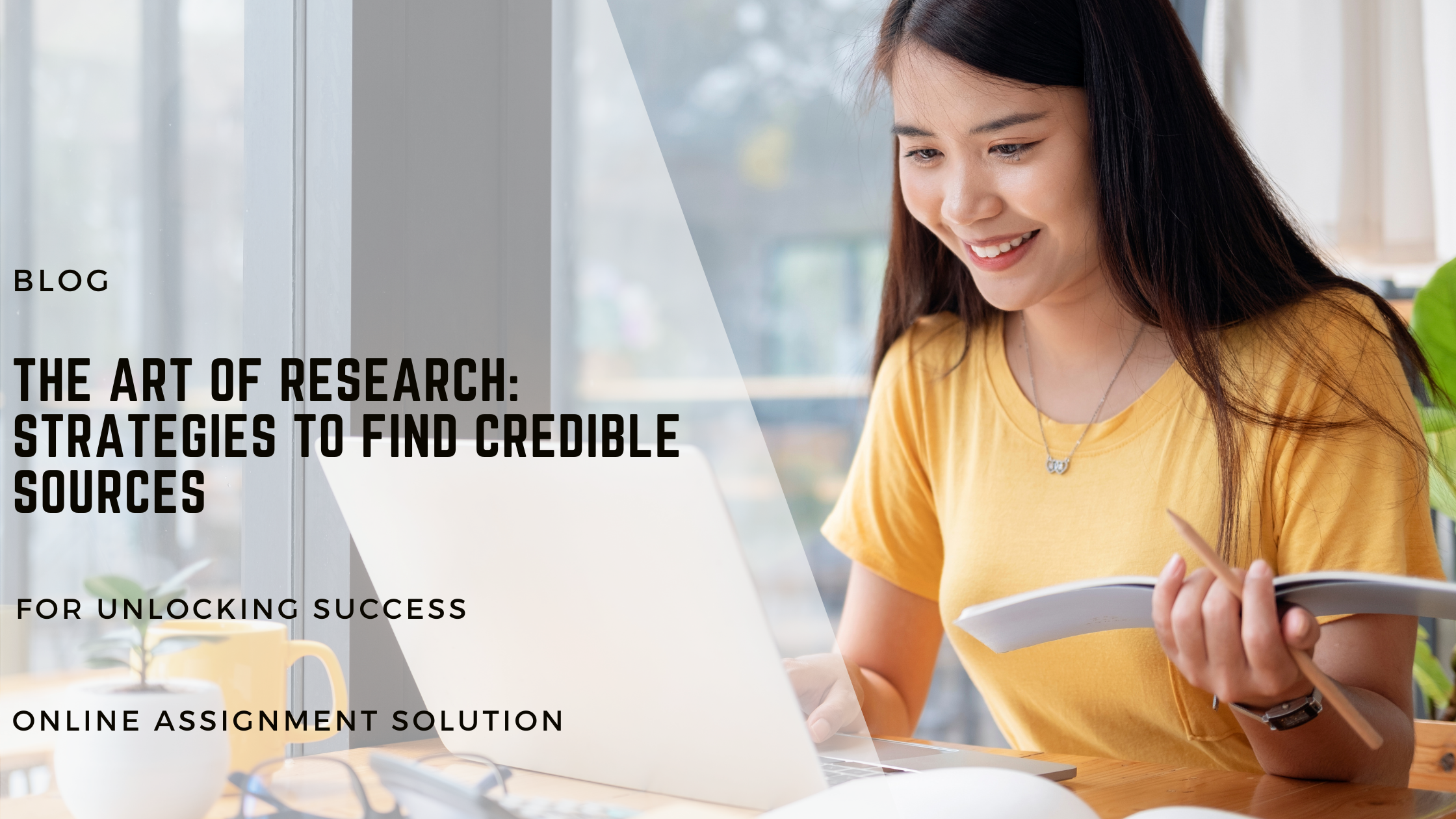
Navigating the vast ocean of information available on the internet can be overwhelming. Whether for academic purposes, professional research, or personal curiosity, mastering the art of finding credible sources is crucial. In this comprehensive guide, we delve into strategies that will empower you to locate and utilize credible sources effectively.

The Art of Research: Strategies to Find Credible Sources The following headings and subheadings outline key strategies to navigate the realm of credible sources effectively:
| Headings | Subheadings |
|---|---|
| Understanding Research Goals | Defining Objectives for Reliable Information |
| Evaluating Source Credibility | Criteria for Assessing Trustworthy Sources |
| Leveraging Scholarly Databases | Accessing Peer-Reviewed Articles |
| Exploring Academic Libraries | Tapping into Rich Repositories |
| Utilizing Government Resources | Trusting Official Data and Publications |
| Validating Expert Opinions | Identifying and Vetting Authorities |
| Harnessing Bibliographies | Tracing Reliable References |
| Employing Advanced Search Techniques | Mastering Boolean Operators |
| Embracing Cross-Referencing | Strengthening Source Verification |
| Collaborating in Forums and Discussions | Engaging in Knowledge Communities |
| Understanding Bias and Objectivity | Navigating Subjectivity in Sources |
| Recognizing Fake News and Misinformation | Deconstructing Inaccurate Information |
| Ethical Use of Sources | Respecting Copyrights and Citations |
| Ensuring Currency and Relevance | Keeping Information Updated |
| Maintaining a Personal Database | Organizing and Storing Sources |
Research endeavors begin with a clear understanding of your objectives. Whether seeking information for academic papers, professional reports, or personal knowledge, outlining specific goals is crucial. Consider the type of information required, depth, and purpose to refine your search effectively.
Determining source credibility is paramount in research. Explore criteria such as author expertise, publication date, peer-reviewed status, and bias to assess the reliability and trustworthiness of sources.
Accessing scholarly databases like JSTOR, PubMed, or Google Scholar provides a plethora of peer-reviewed articles. These databases offer a goldmine of credible sources crucial for academic or in-depth research.
Academic libraries offer extensive resources and databases not always available online. They house books, journals, and other reference materials essential for comprehensive research.
Government websites provide official statistics, reports, and publications, ensuring reliability and accuracy. Sources from government domains are valuable for factual and trustworthy data.
Identifying authorities in the field ensures credible sources. Verify credentials and expertise when relying on expert opinions for your research.
Exploring bibliographies within articles or books allows you to trace back to the original sources. This practice enhances source credibility and strengthens research foundations.
Mastering advanced search operators, such as Boolean logic, enhances search precision. Utilize quotation marks, asterisks, and other operators to refine search results effectively.
Cross-referencing information across various sources ensures accuracy. Comparing data from multiple credible sources strengthens the validity of your research.
Engaging in forums or discussions relevant to your research topic can unearth valuable insights. Active participation in knowledgeable communities expands your pool of credible sources.
Recognizing biases in sources is essential for a well-rounded perspective. Analyze viewpoints objectively, acknowledging potential biases inherent in sources.
Developing critical thinking skills aids in identifying misinformation and fake news. Scrutinize sources, fact-check information, and rely on reputable platforms for accurate data.
Respect intellectual property rights by citing sources appropriately. Complying with ethical guidelines ensures the rightful recognition of original authors.
Regularly update and verify information for currency and relevance. Utilize recent sources to ensure the accuracy of your research.
Organize and store sources systematically using reference management tools. Creating a personal database streamlines future research endeavors.
In conclusion, mastering the art of research involves employing diverse strategies. By understanding research goals, evaluating credibility, and employing various techniques, researchers can navigate the complex landscape of information effectively.
FAQs
The journey to find credible sources is an integral part of any research process. By employing a variety of strategies, understanding the nuances of information evaluation, and being diligent in source selection, one can master The Art of Research: Strategies to Find Credible Sources effectively.
OnlineAssignmentSolution.com is your ultimate academic ally, offering comprehensive assistance to students seeking guidance and support. We specialize in providing meticulously crafted assignments, tailored tutoring sessions, and invaluable resources to elevate your academic journey. Our team of experienced educators and subject matter experts is dedicated to ensuring your success by offering personalized assistance, clarifying concepts, and aiding in complex assignments. From expertly written papers to insightful study materials, we are committed to empowering students with the tools and knowledge necessary to excel in their academic pursuits. Trust us to navigate through challenging assignments, enhance your learning experience, and pave the way toward achieving your educational goals.
Get Industry Ready With Access to Latest Updates!
Now Don’t Miss Out On Any Trending Revelation in the Assignment Writing Industry.
Get An Expert Advice, Whatsapp Us
Essay Writing Help
Research Paper Writing Services
Coursework Help
Thesis Writing Services
Case Study Help
Term Paper Writing Services
© 2023 Online Assignment Solution
© 2023 Created by Sagnick
